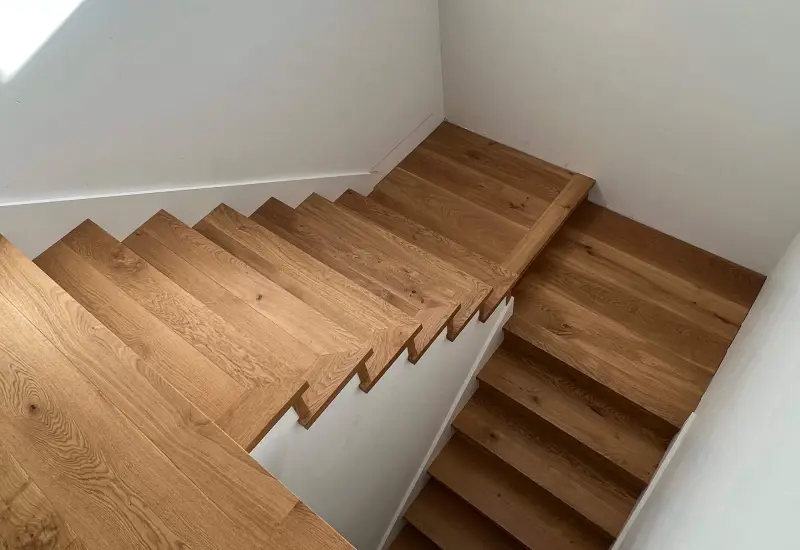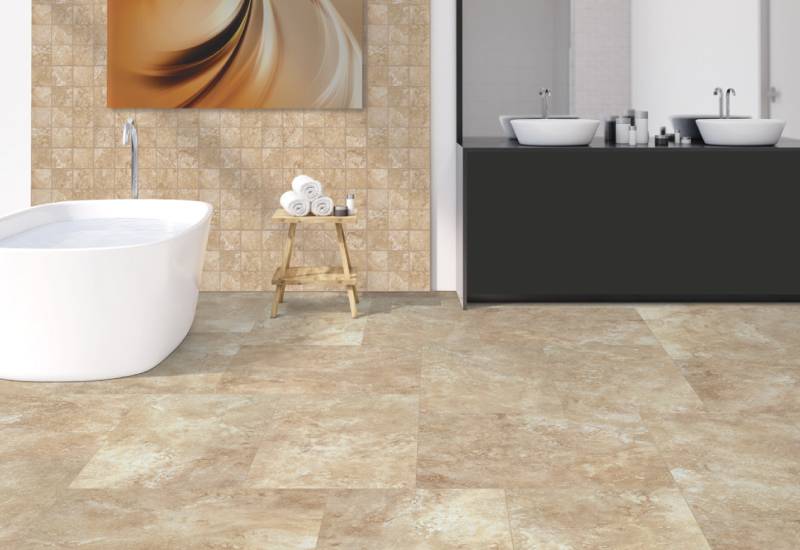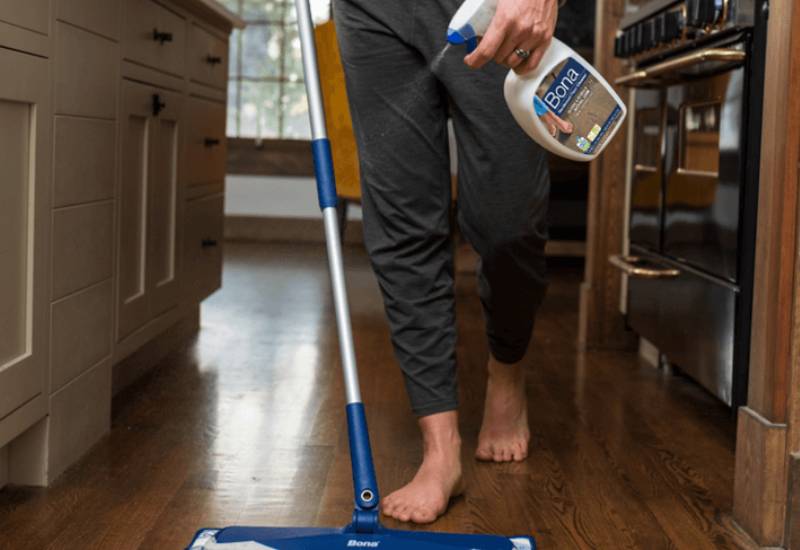Two main types of Luxury Vinyl Plank Flooring, SPC (Stone Plastic Composite) and WPC (Wood-Plastic Composite), offer water resistance, making them suitable for various rooms. SPC, a relatively newer product, incorporates a rigid core for enhanced durability, while WPC emphasizes additional comfort. SPC utilizes a Stone Polymer Composite for superior stiffness, and WPC includes a Wood-Plastic Composite with a foaming agent for enhanced warmth and comfort. Considerations such as cost, durability, and comfort play a crucial role in deciding between SPC and WPC vinyl flooring.
LVP products follow a five-layer construction, comprising a UV layer for easy maintenance, a wear layer for durability, a decorative layer for a realistic appearance, a core layer (SPC or WPC), and an attached pad for antibacterial properties, sound reduction, and added comfort.
SPC flooring, with a core composition of approximately 60% limestone, polyvinyl chloride, and plasticizers, excels in resilience and near-complete waterproofing. It is highly durable, resisting scratches and dents, making it suitable for high-traffic areas. Conversely, WPC, with its core composition including polyvinyl chloride, plasticizers, and wood-like materials, combines exceptional durability with added comfort and warmth.
Pros of Luxury Vinyl Plank Flooring:
- Durability: Highly resistant to spills, scratches, and scuffs, LVP offers superior durability and can withstand mild chemical spills.
- Variety: LVP provides a diverse range of looks, replicating various wood species, allowing homeowners to find a product that suits their style.
- Affordability: Compared to real wood floors, LVP is typically more budget-friendly, saving on both materials and installation costs.
- Versatility: LVP can be used in most rooms, offering peace of mind due to its ability to withstand moisture damage, pets, and children.
- Ease of Installation: DIY-friendly, LVP is easier to install than other flooring types in simple applications.
- Low Maintenance: Easy to clean with a broom or vacuum, spills can be quickly wiped away with a towel.
Cons of Luxury Vinyl Plank Flooring:
- Pattern Repetition: Due to printed designs, pattern repetition may be noticeable on the floor, with a limited number of unique boards per design.
- Home Value: While it may enhance home value, LVP does not add the same value as real hardwood floors.
- Sustainability: LVP is less sustainable than other flooring options, often manufactured in China where environmental practices may be questionable. Once damaged, an LVP plank cannot be repaired and must be replaced.
LVP flooring serves as an appealing alternative to hardwood, seamlessly blending style, durability, and cost-effectiveness. We hope this explanation of the pros and cons, coupled with the differences between SPC and WPC varieties, enables you to make an informed decision about your flooring.
At Warehouse Direct, we have been serving Santa Cruz, San Jose, and Monterey for nearly 40 years. Our project management staff is well versed in all aspects of LVP flooring. We would be happy to help with your next flooring project. Contact us today!






